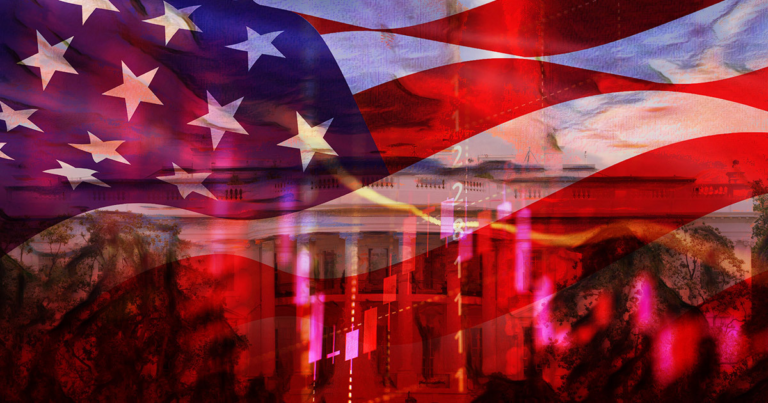 White House alters the definition of a recession to avoid one
White House alters the definition of a recession to avoid one White House alters the definition of a recession to avoid one
Policymakers have changed the conventional meaning of a recession to prevent the economy from falling into one.

Cover art/illustration via CryptoSlate. Image includes combined content which may include AI-generated content.
According to a new blog post released by the White House, an economic recession can no longer be quantified by its traditional definition of “two successive quarters of falling real growth”.
What’s there in a name?
As the global macroeconomic landscape continues to deteriorate, US GDP figures that are due later this week – and are highly likely to exhibit a second consecutive quarter of negative growth – will no longer be referred to as a ‘recession’ by the current administration.
According to the President’s Council of Economic Advisers, the conventional definition will henceforth not be valid, with the government body preemptively noting:
“Instead, both official determinations of recessions and economists’ assessment of economic activity are based on a holistic look at the data – including the labor market, consumer and business spending, industrial production, and incomes. Based on this data, it is unlikely that the decline in GDP in the first quarter of this year – even if followed by another GDP decline in the second quarter – indicates a recession.”
The numbers don’t lie
Over the first three months of 2022, the total output of the American economy has shrunk at a rate of 1.6%. According to experts, this figure is likely to grow by a paltry 0.4% for Q2 when the government releases new data on Thursday.
In reaction to the news, cryptocurrencies across the board fell sharply, with Bitcoin and Ethereum dipping by approx 4% and 7.5% respectively.
The decline also precedes news of the Federal Open Market Committee’s upcoming meeting that is scheduled for July 27. Not only that, the earning records of several corporations for Q2 are also anticipated, thus setting the coming few days up to be extremely exciting.
Lastly, the Fed is likely to raise interest rates by another 75 basis points in the near term so as to help control rising inflation. Inflation numbers are currently hovering at 9.1%, their highest levels in over 40 years.
Janet Yellen claims no recession on the horizon
U.S. Treasury secretary, Janet Yellen, recently noted at a press event that even though America’s growth has been extremely weak over the past few months, consumer spending has been on the rise alongside a strong labor market. She believes that the economy is not in a recession, even though things could very well change in the future, adding:
“This is not an economy that is in recession. But we’re in a period of transition in which growth is slowing and that’s necessary and appropriate. Recession is broad-based weakness in the economy. We’re not seeing that now.”
To this point, the U.S. economy was able to generate a total of 1.1 million new jobs during Q2 2022, which works out to around 375k jobs per month, which is three times more jobs than any other three-month span preceding a recession. During all this, the national unemployment rate has remained steady at around 3.6% (between January – April).





























































